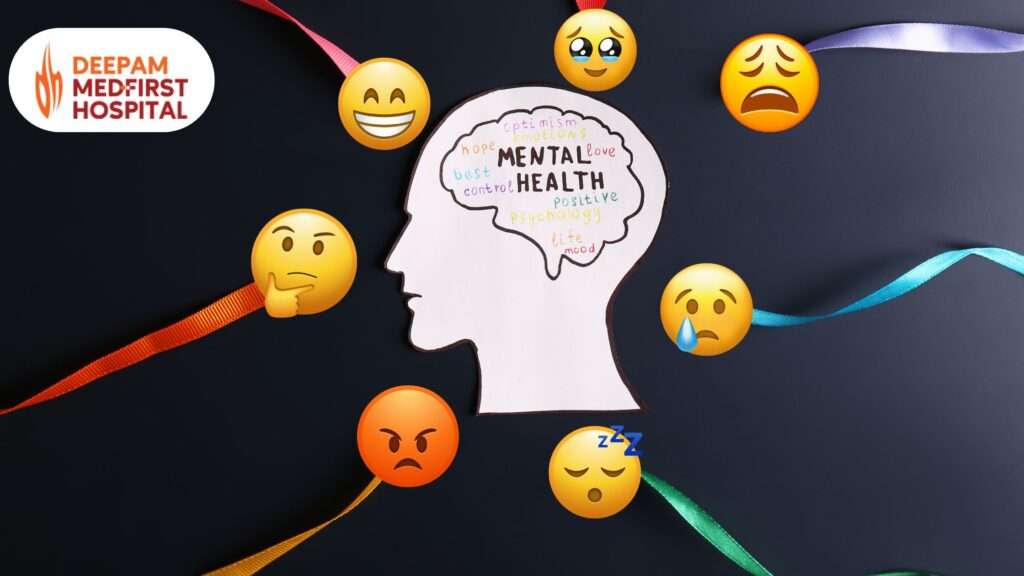In a world where hustle culture and constant connectivity have become the norm, mental health is often overlooked. We focus on physical well-being and professional success but forget that mental health plays an equally crucial role in our overall happiness and ability to thrive. It’s time to break the stigma and make mental wellness a priority.
Why Mental Health is Essential
It is the foundation of our emotional, psychological, and social well-being. It determines how we handle stress, relate to others, and make decisions in everyday life. Whether we acknowledge it or not, our mental health impacts how we think, feel, and act.
Ignoring it can have severe consequences:
- Increased risk of developing chronic health conditions like heart disease.
- A higher likelihood of substance abuse.
- A breakdown in relationships, career, and social functioning.
Conversely, maintaining good mental health enhances productivity, fosters healthy relationships, and improves the overall quality of life.
Common Mental Health Issues
It disorders come in various forms and affect people differently. Here are some of the most common ones:
- Anxiety Disorders: These include generalized anxiety disorder, panic disorder, and social anxiety. Symptoms involve excessive worry, panic attacks, and avoidance of social situations.
- Depression: Characterized by persistent sadness, loss of interest in activities, and a lack of energy. It can interfere with daily life and become debilitating if left untreated.
- Bipolar Disorder: This involves extreme mood swings, ranging from depressive lows to manic highs.
- Post-Traumatic Stress Disorder (PTSD): Triggered by traumatic events, PTSD leads to flashbacks, nightmares, and severe anxiety.
- Obsessive-Compulsive Disorder (OCD): Involves recurring thoughts (obsessions) and repetitive behaviors (compulsions) that are hard to control.
Recognizing the signs and seeking help early can make a world of difference in managing these conditions.
Self-Care Practices to Support Mental Health
Building a routine that supports mental health can help you manage stress and prevent more serious issues from arising. Here are some proven strategies:
- Exercise Regularly: Physical activity boosts mood and reduces anxiety and depression. Whether it’s a morning run, yoga, or simply walking outdoors, movement is medicine for the mind.
- Eat a Balanced Diet: Nutrient-rich foods like leafy greens, whole grains, and omega-3-rich fish have been linked to improved mental health. A healthy gut can positively affect your mood.
- Practice Gratitude: Studies show that practicing gratitude can increase happiness and reduce depression. Keeping a gratitude journal where you write down three things you are thankful for each day can shift your focus from negative to positive.
- Set Healthy Boundaries: It’s important to recognize your limits and not take on more than you can handle. Say no when necessary to protect your mental well-being.
- Get Enough Sleep: Sleep is essential for mental health. Lack of sleep can worsen symptoms of depression and anxiety. Aim for 6-8 hours of quality sleep each night.
- Engage in Hobbies: Creative outlets, like painting, writing, or gardening, allow you to express emotions in a non-verbal way and serve as a form of self-care.
- Seek Social Support: Isolation can worsen mental health conditions. Stay connected to loved ones, whether through face-to-face conversations or virtual communication.
Conclusion
Taking care of your mental health is not just a one-time task but a lifelong commitment to well-being. In a world filled with demands, pressures, and uncertainties, maintaining mental wellness requires intentional effort. It’s about recognizing when to slow down, seeking help when needed, and embracing self-care as a non-negotiable part of life.
Mental health affects every aspect of your existence—how you think, feel, and interact with the world around you. Prioritizing it doesn’t just enhance your quality of life; it fosters resilience, productivity, and deeper connections with others. By adopting healthy habits, breaking the stigma around mental health, and supporting those in need, we can collectively create a more compassionate and understanding society.
Remember, your mental health journey is personal, but you don’t have to walk it alone. Whether through therapy, community support, or small daily practices, every step toward mental wellness is a step toward a better, brighter future. Start today—because your mental health matters, and so do you.

